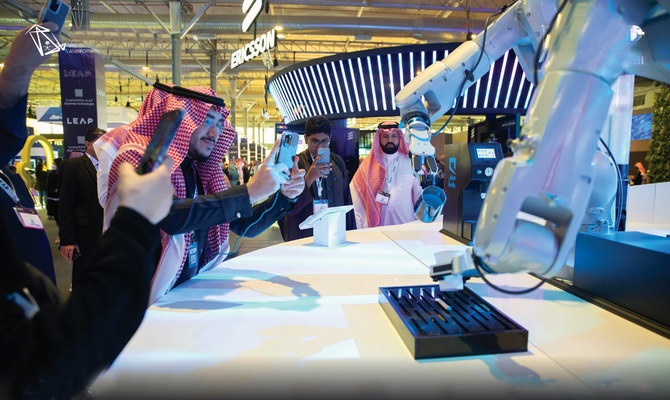
The artificial intelligence market in the Middle East and North Africa region is expected to grow from $500 million in 2020 to $8.4 billion by 2026, according to a new report.
The findings by firm Research and Markets suggests that the market for the advanced technology in the region will witness a compound annual growth rate of 47.8 percent, with Saudi Arabia and the UAE leading from the front.
According to the report, the value of the artificial intelligence market in the UAE alone will reach $1.9 billion by 2026, representing 36.2 percent growth.
Business leaders in the Middle East region also consider AI crucial in the coming years for their operational growth. According to a study conducted by global consultancy firm Proviti Middle East, more than 80 percent of CEOs in the region believe the technology is critical to the future of their businesses, and over 70 percent of them are investing in the booming sector.

Understanding the potential of AI, Saudi Arabia is heavily investing in the industry, as the Kingdom’s sovereign wealth fund announced in 2019 a $500 billion investment in AI and other emerging technologies over the next decade.
The Kingdom has also launched several initiatives, including the establishment of the Saudi Arabian Data and Artificial Intelligence Authority and the National Data Management Office, to accelerate the implementation of AI in the Kingdom’s various sectors.
The UAE is also boosting its involvement in technology and has launched the National Artificial Intelligence Strategy 2031, with its focus on attracting talent for jobs of the future, funding research and innovation hubs, and developing appropriate infrastructure and data ecosystems along with a balanced legislative environment.
As nations and companies across the world steadily embrace AI, a recent report from investment bank Goldman Sachs suggested it could take the place of 300 million full-time jobs around the world.
The report predicted that administrative and legal sectors will be at the highest risk, with 46 percent of administrative jobs and 44 percent of legal positions at risk of replacement by AI.
According to the report, physically intensive jobs are expected to face less risk, with construction facing a 6 percent threat, whereas maintenance is at a 4 percent threat.
“The combination of significant labor cost savings, new job creation, and a productivity boost for non-displaced workers raises the possibility of a labor productivity boom like those that followed the emergence of earlier general-purpose technologies like the electric motor and personal computer,” stated the bank in a note titled The Potentially Large Effects of Artificial Intelligence on Economic Growth.
The Goldman Sachs report, however, added that technological advances that initially replace workers will create employment growth in the long term.
“Although the impact of AI on the labor market is likely to be significant, most jobs and industries are only partially exposed to automation and are thus more likely to be complemented rather than substituted by AI,” said the report.
Goldman Sachs further pointed out that the rollout of AI could boost labor productivity, and push global growth up by 7 percent year-on-year over 10 years.
